- Home
- Tiffany Reisz
The Bourbon Thief
The Bourbon Thief Read online
1
Paris
There wasn’t much in the world Cooper McQueen cared about more than a good bourbon. In his forty-five years, not one single beautiful woman had managed to persuade him to set down his drink and leave it down. But when the woman in the red dress walked into his bar—a gift from the gods tied in a tight red bow—McQueen decided he might have seen the one woman on earth who could turn even him into a teetotaler. Her dress was tight as old Scrooge’s fist, red as Rudolph’s nose, and looking at her, McQueen had only one thought—Christmas had come awfully early this year.
Miss Christmas in July glanced his way, smiled like she knew what he was thinking and was thinking along the same lines herself, and McQueen figured he’d be leaving the bar early tonight and nobody better try to talk him out of it.
Not wanting to appear too eager, he continued to sip his bourbon—neat—as he kept her in his peripheral vision. Christmas in July walked over to the bar and took a seat. He watched her study the menu and he smiled behind his glass. In one minute he’d go over to her, buy her a drink, let it slip he owned the bar, dangle out the bait, see if she was in the mood to nibble. He’d seen his fair share of beautiful women in his bar, usually too young—he had some pride, after all—but Miss Christmas looked a respectable thirty-five. A real woman. A grown woman. The sort he could sleep with without apology. She had dark skin and black hair that lay in heavy coils down her back and tied at the nape of her neck with a red ribbon he fully intended to untie with his teeth given the opportunity.
One minute up, he went to claim the opportunity.
It didn’t break McQueen’s heart to excuse himself from his current conversation with someone who was either an investment banker or a venture capitalist. He had stopped listening the moment Miss Christmas walked in. He went over to her and sat in the empty bar stool to her left without waiting for an invitation. He owned the place. No reason not to act like it.
He didn’t say anything at first. He let the silence linger and grow as heady as the muddy Ohio River on a hot night, the kind that made even the sidewalks sweat. Maybe he could talk the lady into a stroll over to the river while the night was still warm. Maybe he could talk her into something more.
“What can I get you?” Maddie, the pretty blonde bartender, asked the woman.
“How about a shot of Red Thread?” the woman said. “I like to match my drinks to my hair ribbon.”
“Red Thread?” Maddie glanced at McQueen, a silent plea for help. “I don’t think...”
“Red Thread’s been out of business for thirty-five years,” McQueen said to Maddie.
“Oh, good. Thought I was going crazy. Could have sworn I knew every bourbon there was,” Maddie said. “Any bottles left?”
“Not a one,” McQueen said, not a white lie, not a black lie. A little red lie.
“What a shame,” Miss Christmas said, although she sounded neither surprised nor disappointed. Christmas was right. Her voice had a frosty tone to it. She was cool. He liked cool.
“A damn shame. They say it was the best bourbon ever bottled.” McQueen waited for the lady in the red dress to speak again, but she stayed silent, listening, alert, eyes only for Maddie at the moment.
“What happened to it?” Maddie asked him.
“Warehouse fire,” McQueen said, shrugging. “It happens. You distill alcohol and store it in wooden barrels? Fire’s your worst nightmare. Red burned to the ground in 1980 and never reopened. No one knows who owns it anymore.” McQueen had tried to buy the old Red Thread property himself but had no luck. He’d gotten as far as finding the shell company—Moonshine, Ltd.—that owned the acreage and the trademark, but it didn’t seem to have a human being behind its name. “I would know because I’ve looked.”
“Isn’t that interesting...” Miss Christmas said with the hint of a smile on her red lips, and he couldn’t tell if she meant it or if she was being sarcastic. She spoke with a Kentucky accent, faint but recognizable to someone who spent half his time in New York and half his time in Louisville. Kentucky accents sounded like home to him and his ears always perked up when he heard one.
“Can I get you something else?” Maddie asked the woman.
“Four Roses, neat. Double pour.”
“A lady who knows her bourbon and isn’t afraid to drink it straight.” McQueen turned ten degrees on his bar stool toward her. “A woman after my own heart.”
“I’m a Kentucky girl,” she said with a graceful shrug. “And bourbon’s like the truth, you know.”
“How’s that?”
“The first taste burns, but once you get used to it, it’s the only thing you want in your mouth.”
Miss Christmas brought the shot glass to her lips, took a sip and didn’t flinch as she drank it. The bourbon didn’t burn her.
“Tell me something true, then,” McQueen said. “What’s your name?”
“Paris.”
“Beautiful name.”
“Thank you, Mr. McQueen.”
“You know who I am?”
“Everybody knows who you are. You own this bar,” she said, nodding at the words The Rickhouse, Louisville, Kentucky, engraved on the mirror behind the bar, the image of a turn-of-the-century wood warehouse also etched in the glass. “I hear you’re opening another bourbon bar in Brooklyn.”
“You don’t approve?”
“Leave it to white people to turn a beautiful drink like bourbon into a fetish. Find a way to make pumpkin spice bourbon, and you’ll be a billionaire.” She took another sip of her Four Roses, all the while looking at him out of the side of her eyes.
“I’ll tell you a secret.”
“Tell it.”
“I’m already a billionaire. But I’m always looking for a new way to waste my money. Why not?”
“You need another business? You tired of owning your basketball team already?”
“I only own part of the team.”
“Which part?” she asked. “I know which part I’d like to own.”
McQueen laughed. “Tell me something, Miss Paris—what do you own?”
Now it was her turn to spin on her bar stool, ninety degrees, and she met him face on with full eye contact, fearless and shameless.
“I could own you by morning.”
Her words rendered McQueen momentarily speechless. He couldn’t remember the last time any woman had so thoroughly stupefied him. Bourbon on her lips and curves on her hips. He was halfway in love with her already.
“I would like to see you try,” McQueen said. “And that’s not a challenge. I really would like to see that with my own eyes.”
“Shall we?” she asked, raising her eyebrow a fraction of an inch.
He had to know her. “Yes,” he said. “Yes, we shall.”
They left the bar together but drove separately to his house. As he wove his way through downtown traffic, he saw that somehow he’d lost her behind him. He’d given her his address and she surely didn’t need to follow him to find it. An irrational fear took hold of him between the red light and the green, a fear she’d changed her mind, driven off, considered a better offer somewhere else with someone else. No, surely not. She’d wanted him, he knew it. He’d seen avarice in her eyes at the bar, and whether it was for his face, his money or his reputation as the richest man in Kentucky, he didn’t care. They were all true, all parts of him, anyway. Whatever part of him she wanted, he didn’t care as long as she wanted him. She did want him, didn’t she? Irrational thoughts. Irrational fears.
Yet he couldn’t shake the feeling that he must see her tonight, be with her. Anything less would be calamitous. A man needed wanting. What was the point of having wealth, power and the body of a man half his age if no one bothered to use him for it?
McQueen
pulled into his driveway and saw a black Lexus already there and waiting. Self-respect prevented him from sighing in his relief, but even a self-respecting man was allowed to smile. She’d simply taken a different route. No big surprise. If she lived anywhere around here, she’d know about his house. Everybody in town knew about Lockwood—named not for the forest that surrounded the property he kept locked behind stone walls, but for the man who built it in 1821. Old by American standards, but McQueen’s family was Irish. A two-hundred-year-old house was just getting comfortable by his grandfather’s standards. And McQueen tended to judge everything by his grandfather’s standards.
Lockwood was a redbrick three-story Georgian masterpiece with double-height white porticos protected by a twelve-foot-high wrought-iron gate. He and Paris parked in the circular cobblestone driveway in front of the temple-style porch. She emerged from her car all long legs and slim ankles and red shoes, and she didn’t blink at the house. It seemed to make no impression on her whatsoever. Miss Paris must have her own money. The shoes, the dress, the Birkin bag that was nearly identical to the one his ex-wife carried? All that screamed money to him. No one was that unimpressed by money except people who have it.
Before entering the house, she paused on the front porch and glanced back at the gate.
“What?” he asked.
“Pretty fence,” she said. “Traditional Kentucky rock fence.”
“Glad you like it,” he said, admiring the view from the porch. The perimeter of the Lockwood property was a rock fence built in the nineteenth century. “I had it built just for you.”
“To keep me in or to keep me out?”
“To keep you surrounded by beautiful things. As you should be.”
She raised her eyebrow slightly and without another word turned and walked into the house. If she hadn’t been looking, McQueen might have patted himself on the back. Good line.
“Welcome to Lockwood,” McQueen said, glad it was late enough all the staff but his security guard were gone. “Hope you like it.”
“Very nice,” she said, barely giving the opulent interior a glance. McQueen didn’t mind that much. He’d rather she looked at him than his foyer, and she was definitely looking at him. Women considered him handsome, and even if they didn’t, they considered him rich, which was usually enough to close the deal.
“I’m the fourth generation of McQueens to live here. My great-grandfather bought this house when he came over from Ireland,” McQueen said. It was summer, warm, and she wasn’t wearing a coat for him to offer to take. He wasn’t sure what to do with his hands. At his age he should have his seduction skills down by now, but Paris made him nervous for a reason he couldn’t name. “He’d planned to settle his family farther west, but the hills reminded him of home. So he stayed.”
“And here we are. What would your great-grandfather have said about you bringing me to his home?”
“I’d like to think he’d have taken one look at you and said, ‘Good job, lad.’”
“I’ll be the judge of how good the job is done.”
“Maybe we should get to work, then.” He reached for her and kissed her under the crystal chandelier, which before today had looked elegant to him, but tonight seemed ostentatious compared to the elegance of this woman in her red dress. She tasted of apples and bourbon when he kissed her and she was right—it did burn, but once he had his first taste, she was all he wanted in his mouth.
McQueen pressed her back against the banister of the spiral staircase that led upstairs. He hooked her leg around his hip, slid his hand up her long bare thigh. She had panties on, but they weren’t enough to keep his fingers out of her. He stepped back, pulled them down her thighs and left them on the floor, where he hoped they would stay until morning.
“Did you plan to seduce me when you came to the bar?” he asked against her lips.
“Yes.”
“Are you after my money?” He sensed such a woman wouldn’t be insulted by such a question.
“Only your bourbon, Mr. McQueen.”
“You want to see my collection?” he asked. “I promise it’s nothing but booze. I don’t own a single etching.”
McQueen and his world-class bourbon and whiskey collection had recently been profiled in Cigar Aficionado magazine, inspiring a few phone calls from collectors trying to buy some of his rarer vintages, but she was his first official bourbon groupie.
“Eventually,” she said, spreading her legs a little wider for him, inviting his fingers a little deeper. “Once you’re done showing me everything else you’ve got.”
McQueen showed her. First he showed her right there against the wall. Then he took her up to the master bedroom, a room baroque with ornamentation and ostentation. Even the bed was gilt. He never actually slept in the room if he could help it. He found other uses for it, however. And that red dress of Paris’s looked about as good on his floor as the priceless gold-and-green Persian rug it lay upon.
When it was all over, Paris reached for her red dress, and it occurred to him that if he let her leave now, he wouldn’t be likely to ever see her again. Something told him he shouldn’t let her go. Something told him if all he did was sleep with her, he would forfeit something, a victory or a prize.
“Don’t leave,” he said as he obliged her by zipping the dress up for her. She had such a lovely back and the light of the bedside Tiffany lamp danced over her dark skin like a tongue of fire. “I haven’t shown you my collection yet.”
“Oh, yes, I’d almost forgotten,” she said, cool as could be. He wasn’t used to women this quiet and unimpressed by being in the bedroom of a billionaire. Too cool.
“I don’t know what to make of you,” he said, narrowing his eyes at her as she wrapped the red ribbon around her hair and pulled the long locks over her shoulder, Venus at her toilette.
“Make of me? Are you putting me in a pie?”
McQueen laughed. “I’d rather keep you in the bedroom than the kitchen. Come on, tell me about yourself.”
“My name is Paris. I was born and raised in Kentucky. I moved to South Carolina for school. I got married a couple years ago, inherited money when my husband died, and now I’m back. I have no children. I am no one special. You only think I’m mysterious because you’ve noticed I’m not terribly interested in spending the rest of my life with you and that is one mystery a man like yourself can’t solve.”
“That hurts.”
“No, it doesn’t.”
McQueen raised his eyebrow. “A rich widow. That explains a lot.”
“What does it explain?”
“Why I don’t impress you. You have your own money.”
“You tell yourself that’s the reason,” she said with a smile sweet as the pie he should put her in, and goddammit, McQueen wanted her again already. She made him forget he was forty-five. “I won’t contradict you.”
“I’m going to impress you before you leave,” he said. “Watch me.”
“I’m watching.”
He dressed in his suit minus the jacket and tie and led her from the bedroom, down the hall and to a bookcase. On the bookcase were unread leather-bound volumes of all the classics.
“Very nice,” Paris said. “Did your decorator provide the books? Or did you order them from the pretty book wholesale warehouse?”
“This isn’t it,” he said. “I’m going to show you my prized possession.” He pulled on the middle shelf of the bookcase, revealing that it wasn’t simply a bookcase, but a door. He switched on a floor lamp inside the door and waved Paris inside. As she gazed around the hidden room, he watched her face. She revealed nothing—no shock, no surprise, no disappointment.
“Cozy,” Paris said, but from her tone she might have meant “airless.” He watched her take note of the old stone fireplace, the antique sofa with the worn jade fabric and the carved ebony arms. She walked to the wall and pulled back the curtain to reveal...nothing.
“You covered your window with a wooden board?” Paris asked, tapping the board
.
“That’s a mirror,” he said. “I don’t want anyone looking in here. And really, what’s more terrifying than peeking in the window of a house and seeing yourself?”
McQueen retrieved the key he’d hidden in a small silver vase on top of the fireplace mantel and opened a satin bronze cabinet with the Twelve Apostles embossed on the side.
“Is that a tabernacle?” Paris asked.
“It is.”
“You store your alcohol in a cabinet designed to hold communion wafers?”
“My grandfather had a dark sense of humor where the Catholic Church was concerned.”
“I assume he was Catholic?”
“Until he fell in love with a girl who left him for the Carmelites. Never stepped foot in a church again after that. Said no man with any pride would enter the house of the man who stole his wife.”
“Pride indeed. Sounds like his lady picked the right man. You exist, so I assume he got over his lover’s defection?”

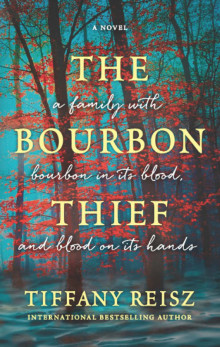 The Bourbon Thief
The Bourbon Thief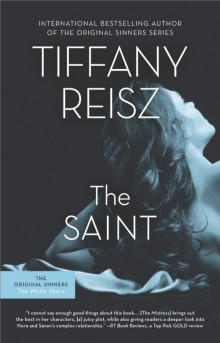 The Saint
The Saint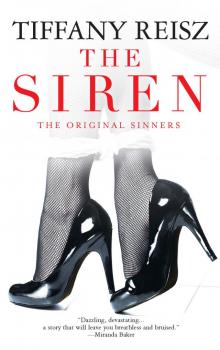 The Siren
The Siren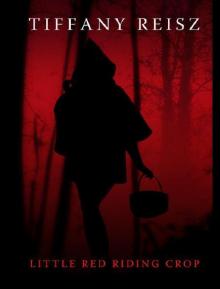 Little Red Riding Crop
Little Red Riding Crop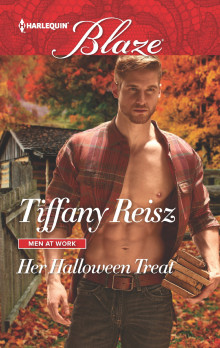 Her Halloween Treat
Her Halloween Treat The Mistress
The Mistress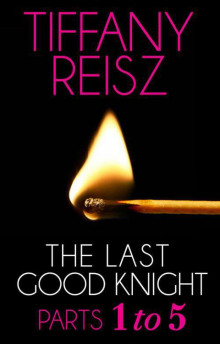 The Last Good Knight
The Last Good Knight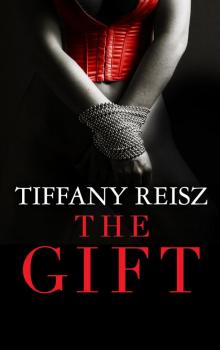 The Gift (Seven Day Loan)
The Gift (Seven Day Loan)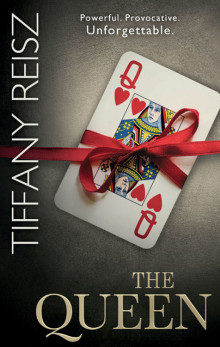 The Queen
The Queen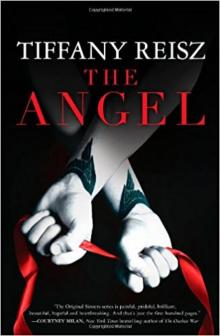 The Angel
The Angel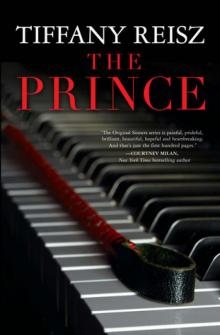 The Prince
The Prince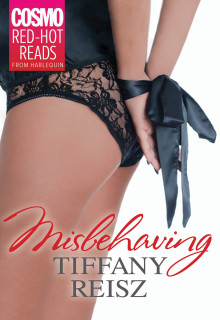 Misbehaving
Misbehaving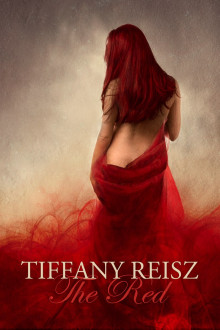 The Red
The Red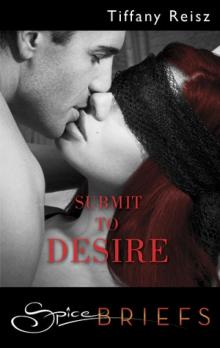 Submit to Desire
Submit to Desire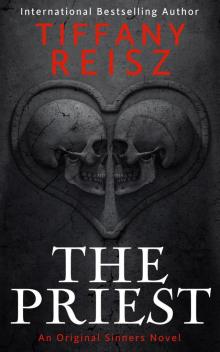 The Priest: An Original Sinners Novel
The Priest: An Original Sinners Novel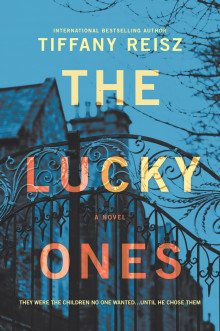 The Lucky Ones
The Lucky Ones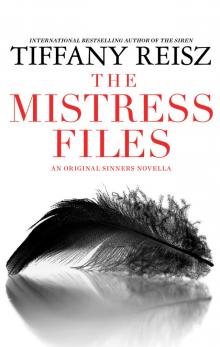 The Mistress Files
The Mistress Files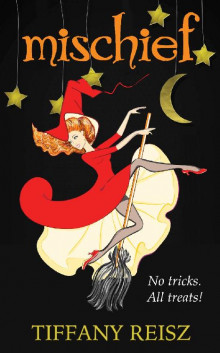 Mischief
Mischief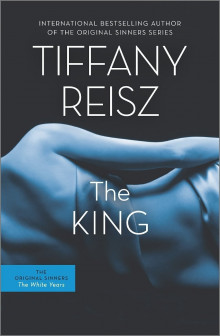 The King
The King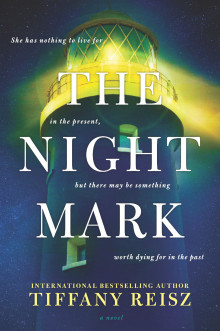 The Night Mark
The Night Mark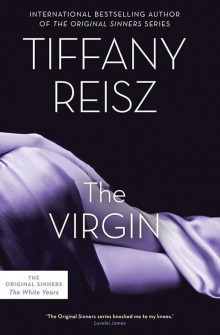 The Virgin
The Virgin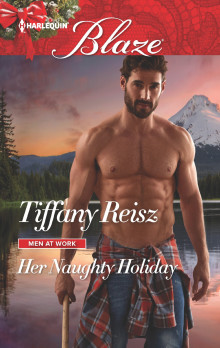 Her Naughty Holiday
Her Naughty Holiday One Hot December
One Hot December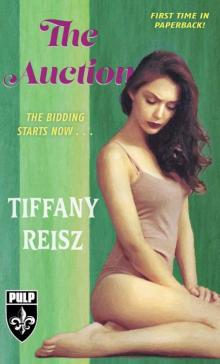 The Auction (The Original Sinners Pulp Library)
The Auction (The Original Sinners Pulp Library)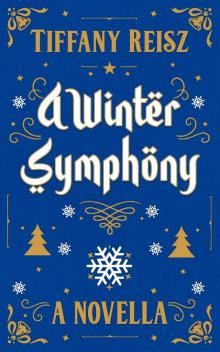 A Winter Symphony: A Christmas Novella
A Winter Symphony: A Christmas Novella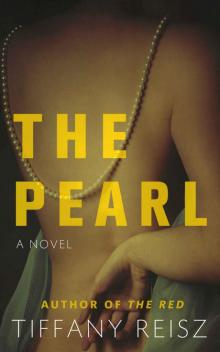 The Pearl (The Godwicks)
The Pearl (The Godwicks)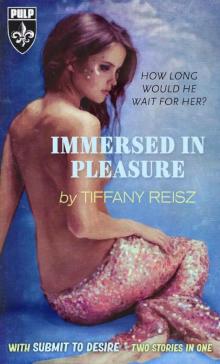 Immersed In Pleasure/Submit To Desire (The Original Sinners Pulp Library)
Immersed In Pleasure/Submit To Desire (The Original Sinners Pulp Library)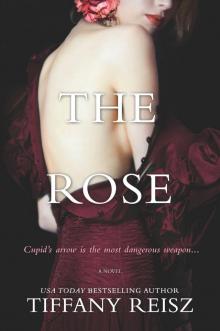 The Rose
The Rose Winter Tales: An Original Sinners Christmas Anthology
Winter Tales: An Original Sinners Christmas Anthology Winter Tales
Winter Tales The Last Good Knight (The Original Sinners Pulp Library)
The Last Good Knight (The Original Sinners Pulp Library)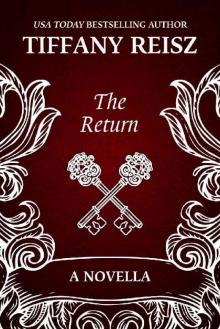 The Return (The Original Sinners)
The Return (The Original Sinners)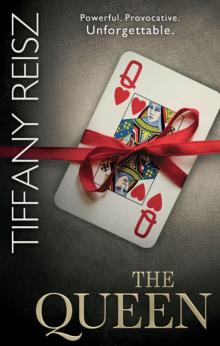 0778318435 (A)
0778318435 (A)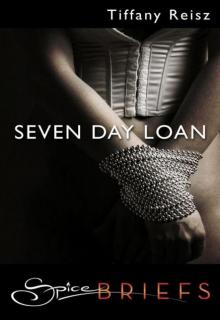 Seven Day Loan
Seven Day Loan Picture Perfect Cowboy
Picture Perfect Cowboy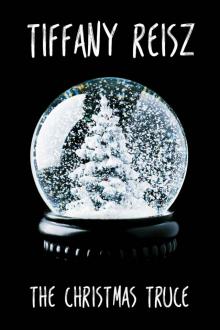 The Christmas Truce
The Christmas Truce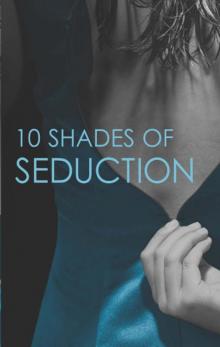 10 Shades of Seduction
10 Shades of Seduction The Chateau_An Erotic Thriller
The Chateau_An Erotic Thriller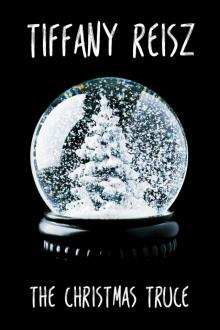 The Christmas Truce: An Original Sinners Novella
The Christmas Truce: An Original Sinners Novella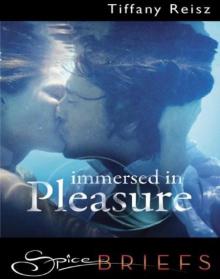 Immersed in Pleasure
Immersed in Pleasure Harlequin E Shivers Box Set Volume 4: The HeadmasterDarkness UnchainedForget Me NotQueen of Stone
Harlequin E Shivers Box Set Volume 4: The HeadmasterDarkness UnchainedForget Me NotQueen of Stone Something Nice: An Original Sinners Novella
Something Nice: An Original Sinners Novella The Confessions
The Confessions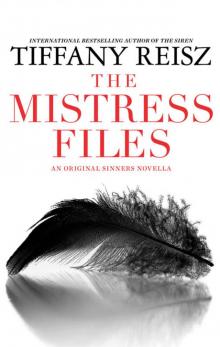 The Mistress Files: The Case of the Acting ActressThe Case of the Diffident DomThe Case of the Reluctant Rock StarThe Case of the Secret SwitchThe Case of the Brokenhearted Bartender
The Mistress Files: The Case of the Acting ActressThe Case of the Diffident DomThe Case of the Reluctant Rock StarThe Case of the Secret SwitchThe Case of the Brokenhearted Bartender One Hot December (Mills & Boon Blaze) (Men at Work, Book 3)
One Hot December (Mills & Boon Blaze) (Men at Work, Book 3)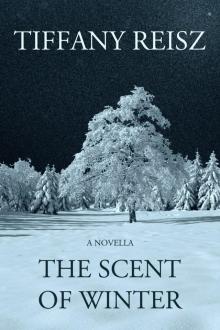 The Scent of Winter: A Novella
The Scent of Winter: A Novella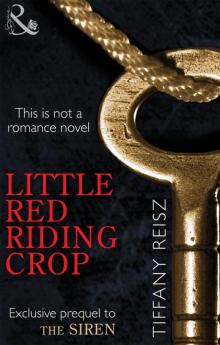 Little Red Riding Crop (Spice) (Prequel to The Siren: Book 1 in The Original Sinners series)
Little Red Riding Crop (Spice) (Prequel to The Siren: Book 1 in The Original Sinners series)